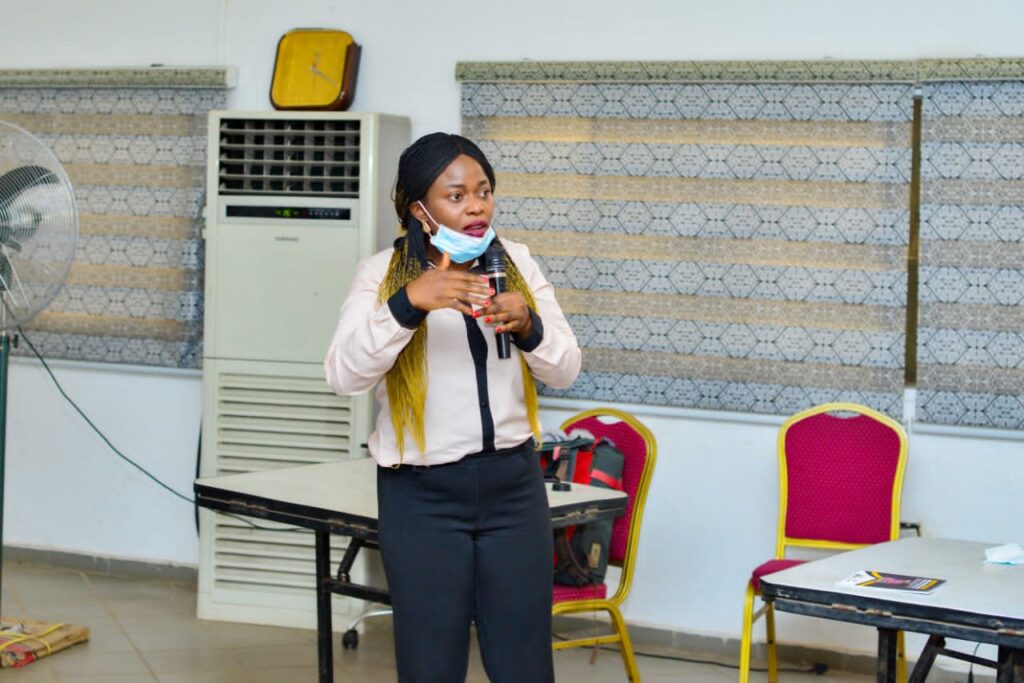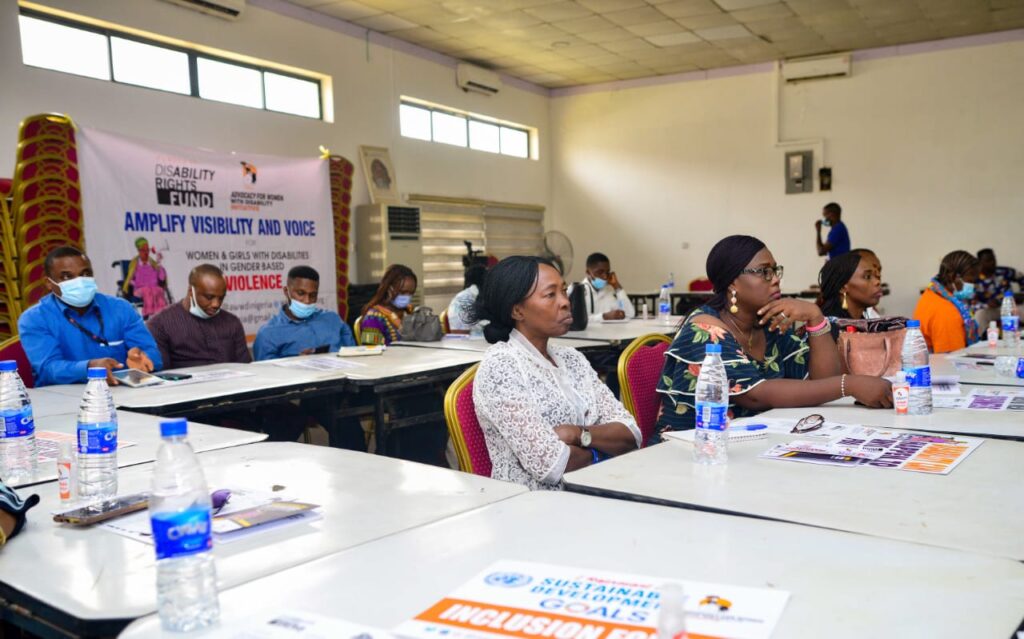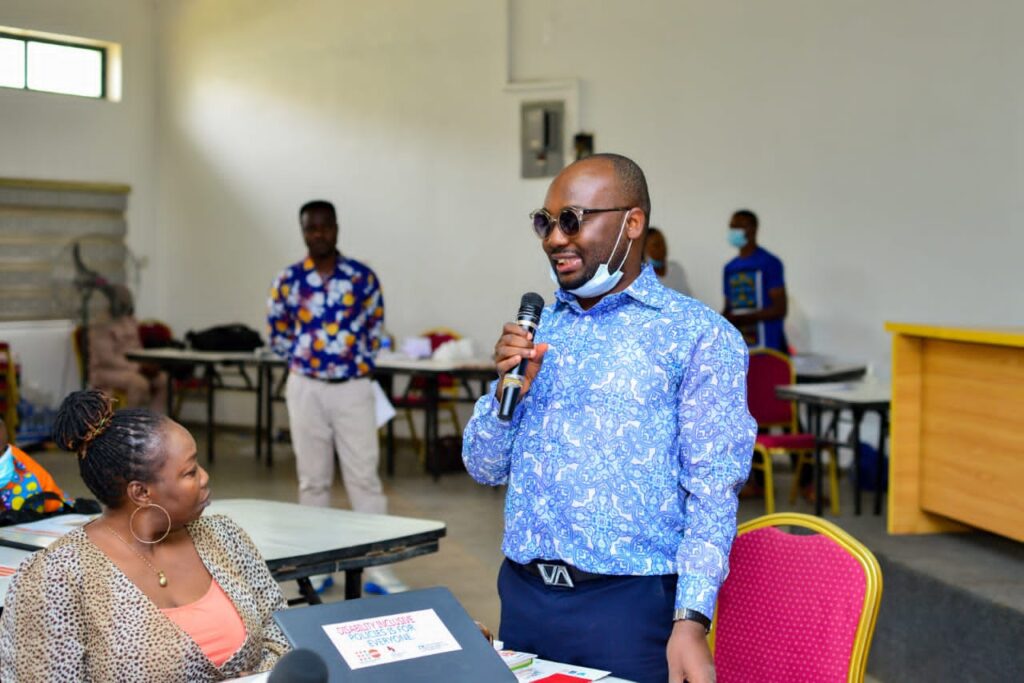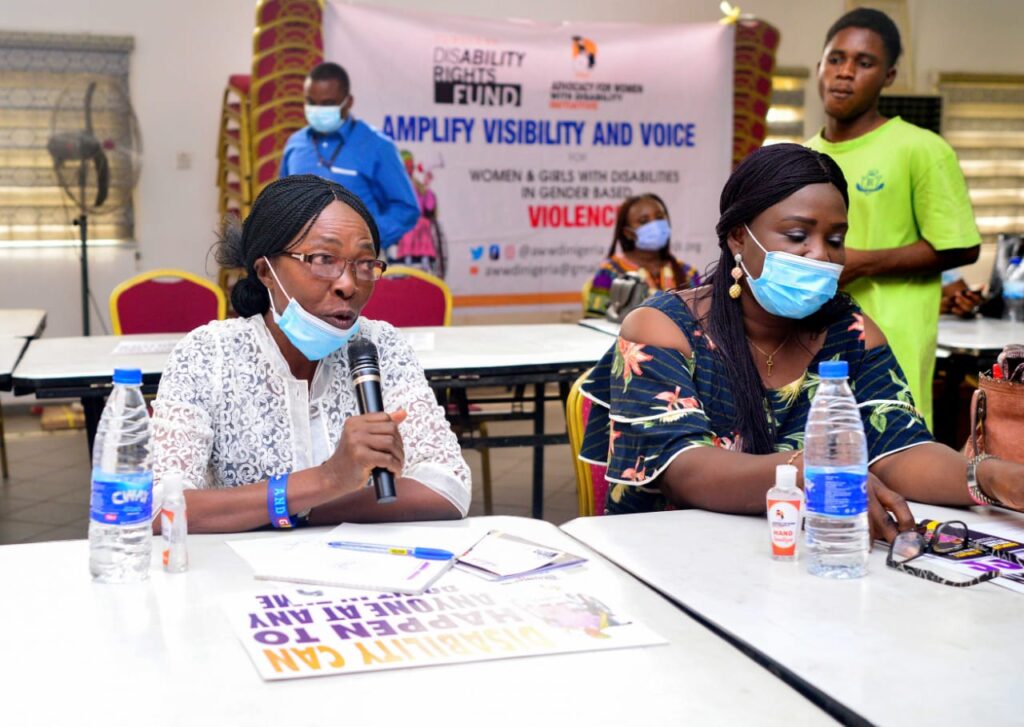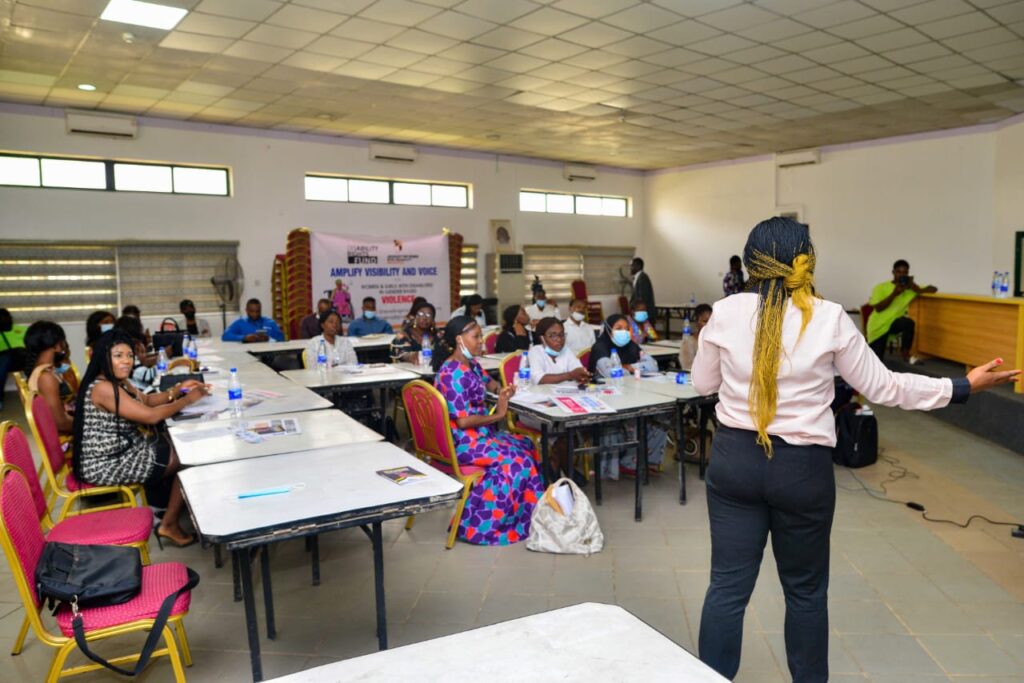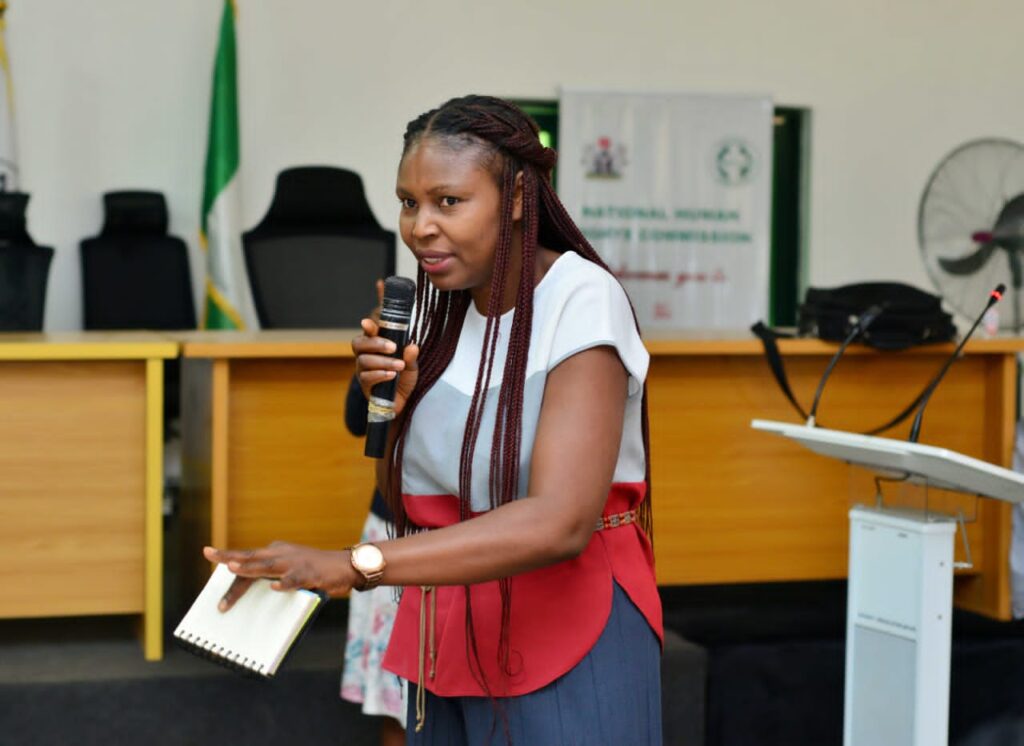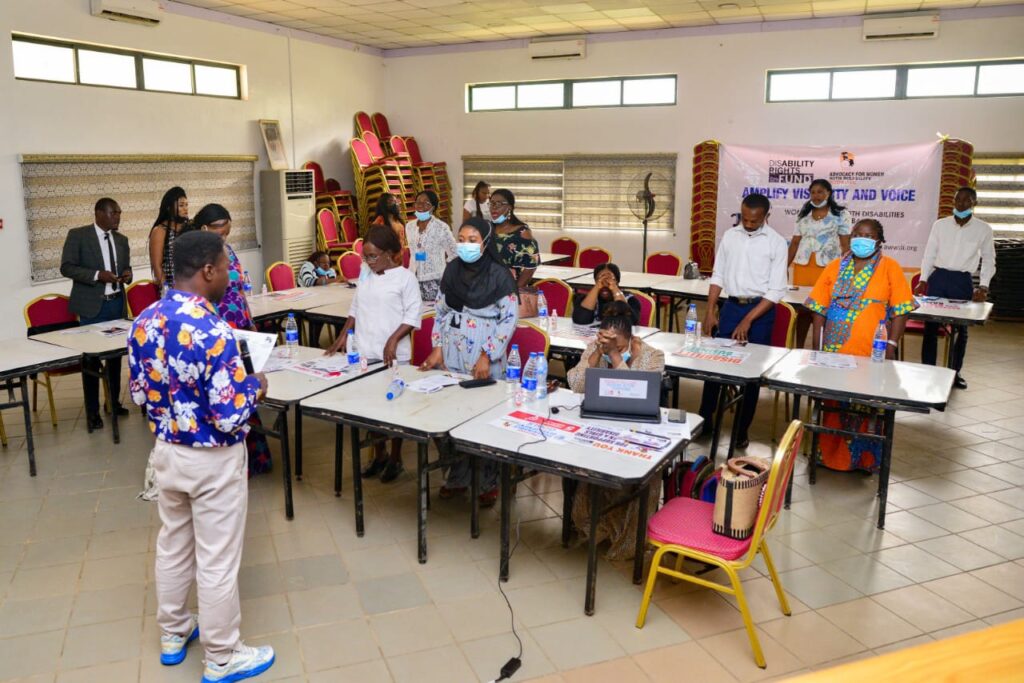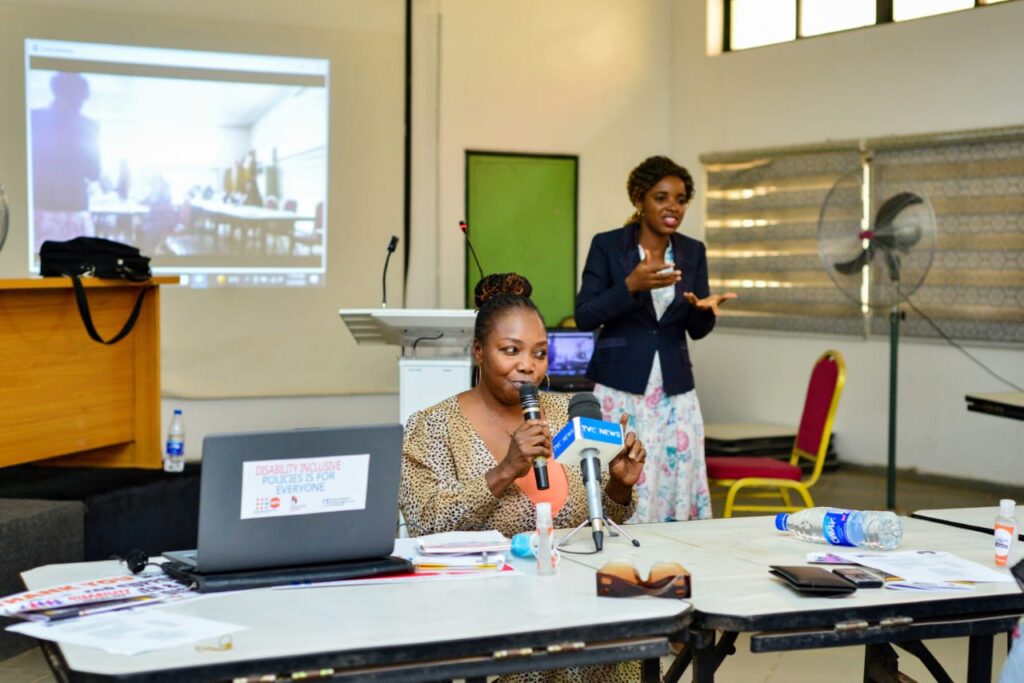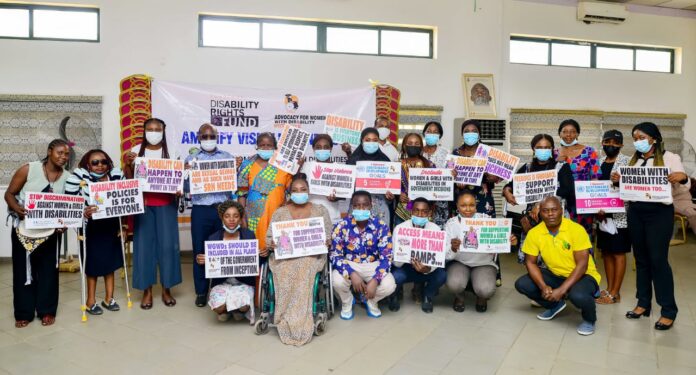ADVOCACY FOR WOMEN WITH DISABILITY INITIATIVE (AWWDI) with the support of The DISABILITY RIGHTS FUND (DRF) on Thursday in Abuja held a capacity building workshop for Health workers and Media in relation to National Policy on SRHR and Discrimination Against Person’s Prohibition Acts, 2018 in line with international best practices (UNCRPD and SDGs).
The conference which was focused on two legs, to wit:
- 1. The role of Health workers in women with disability advocacy;
- 2. The role of the media in disability advocacy
The Executive Director of AWWDI, Patience Ogolo in her opening speech stressed on the need for change of the societal myths and perception of the society towards women with disabilities, citing that those with disability also face sexual harassments such as rape as do fellow women and girls.
In the policy angle, she observed the need for the inclusion of people with disabilities among the drafters to ensure that there is an inclusive and comprehensive policy that cater for the needs of the class of persons.
Concluding, The Executive Director implored the media in advancing the cause of these class of persons, noting in fact, what crucial role the media plays in changing the aged-long narratives and perception of the public towards people with disabilities (PWDs).
The workshop saw the attendance of different public agencies, popular media stations such as TVC news, The Guardian etc, medical experts and non-profit organizations including: The National Orientation Agency (NOA), Disability Rights Fund, The Federal ministry of Health and FRCN.
Dr. Garba Abari – DG, National Orientation Agency was ably represented at the workshop by Mrs. Grace Mama.
While speaking, she touched on the laudable provisions of the Discrimination Against Persons With Disabilities (Prohibition) Act 2018 and noted that PWDs are yet to access the benefits of the Acts due to lack of awareness, particularly in the rural areas.
In this light, she stressed the agency’s commitments in creating awareness through its awareness programs usually advanced by the different Chief Orientation Officers in the 774 local government areas.
She equally affirmed the agency’s commitment in collaborating with Disability Associations such as AWWDI in enlightening the public on the rights of persons with disabilities in other to foster the effective implementation of the Act.
Reassuring AWWDI, FRCN through its representative noted that the commission would be continue to be involved in advancing the advocacy of women with disabilities in all fronts.
Also speaking was Mr. Theophilus Odaudu, the program officer of the Disability Rights Fund – a nonprofit organization that supports advocacy organizations of disability rights. He recapped the foremost idea that women with disabilities should always be included in all sectors and in policy formulation that affects them.
Similarly, Mrs. Adaeze Stella Ike of the Federal Ministry of Health in her presentation noted that disability is never hoped for and as such, is not anyone’s fault. She also pointed that the different kinds of disability need different types of adaptation, stressing on the inclusion and modification of public structures such as would be accessible by PWDs.
She encouraged Health workers to prioritize the needs and attend swiftly to PWDs in their respective hospitals, as well as, respecting their individual decisions and privacy.
Of concern was the matter of the current transport system in Nigeria which was considered to be non-friendly to PWDs. He observed that transportation, especially in the rural areas is not inclusive and in most cases deter people with disabilities from going to the hospital.
Recapping on what the previous speakers noted, Mrs. Stella demanded a radical shift in the policy drafting process, advocating that the roundtable for each policy drafting should always include PWDs.
In terms of sexual violence, Stella was quick to criticize the aged-long myth of degradation placed on women and girls with disabilities that they can not pursue justice when raped. In her statistics, he mentioned that 40% to 60% of women with disability experience sexual violence. Hence, she called on the health workers to change their attitudes towards rape victims form these class of persons and attend to them as they would their other rape victims.
She also stressed on the need for hospitals to have robot aids for PWDs such as interpreters etc, and encouraged parents of children with disabilities to carry out sexual education on their children from the tender age.
The ROLE OF THE MEDIA IN DISABILITY ADVOCACY
On the second phase of the workshop was a presentation from Mr. Matthew Ogune – a reporter in The Guardian outlining what roles and how important the media is in advancing disability advocacy.
He noted that according to WHO, 60-80 million PWDs live in Africa. He also decried how the media, especially the movie industry, has contributed to their misrepresentation.
Positive stories he said, should be told to the public about personal with disabilities. Not only condemning how the media has misrepresented PWDs in recent years, he advised that providing PWDs with trusted and encouraging information in an accessible format and content about how that they too are humans and can achieve their dreams will go a long.
He concluded by encouraging media houses to organize trainings and attend workshops that focus on the rights of persons with disabilities. That way he said, the biased myths and ill perception of media Practitioners towards PWDs would be eradicated.
